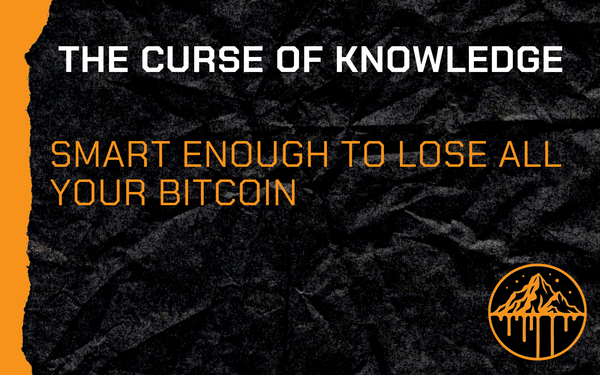
Cognitive Bias
The Curse of Knowledge: Smart Enough to Lose All Your Bitcoin
There’s a peculiar irony in Bitcoin security: the smarter you are, the more likely you are to lose your Bitcoin.

Cognitive Bias
There’s a peculiar irony in Bitcoin security: the smarter you are, the more likely you are to lose your Bitcoin.
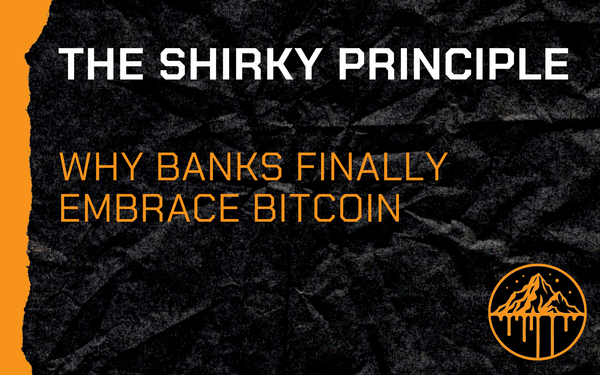
Cognitive Bias
Banks are embracing crypto because they can't kill it.
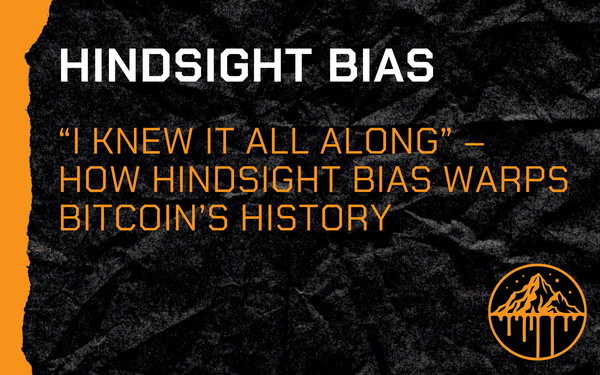
Cognitive Bias
This is Hindsight Bias in action—the tendency to reinterpret the past and convince ourselves that an outcome was obvious, even when we originally believed the opposite.
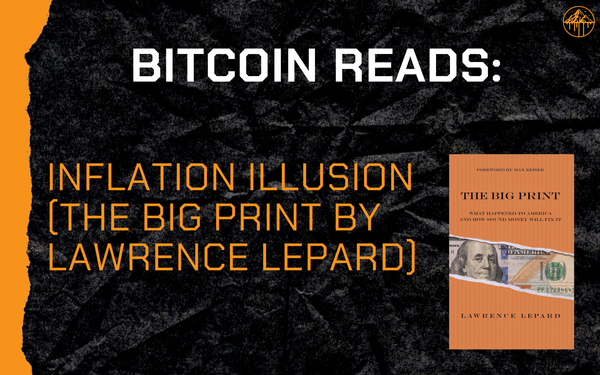
Bitcoin Reads
If you ask the average person about inflation, they’ll likely tell you it’s just a fact of life. Prices go up. Money loses value. That’s how the economy works. But what if I told you that inflation isn’t a natural phenomenon—it’s a policy choice?
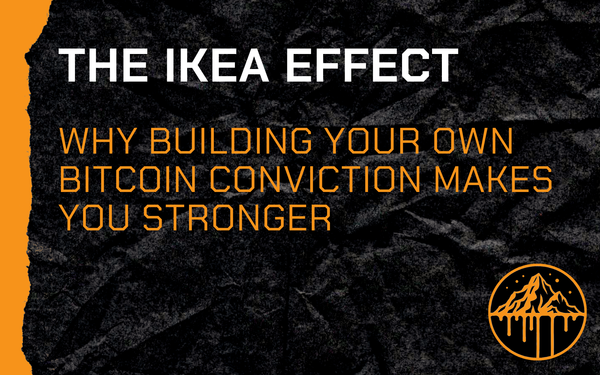
Cognitive Bias
One of the most powerful is The IKEA Effect: the idea that we value things more when we put in the effort to build them ourselves.

Cognitive Bias
Loss Aversion is a cognitive bias where people fear losing something more than they value gaining something of equal or greater worth. Studies show that the pain of losing $100 feels twice as bad as the pleasure of gaining $100.

Cognitive Bias
Most people don’t make deliberate financial decisions—they default to whatever feels easiest. When things get uncomfortable, they avoid the problem altogether. This is the Ostrich Effect, a cognitive bias where people ignore bad news to avoid stress, even when ignoring it makes things worse.

Cognitive Bias
We assume that what we’ve always done must be right, even when it clearly isn’t working. This is Status Quo Bias—a cognitive shortcut that tricks us into sticking with the familiar, even when better options exist.

Resulting
Humans hate uncertainty. When something goes wrong, we want a simple explanation—one that makes sense and gives us a clear takeaway. Instead of analyzing our decision-making process, we judge whether something was a “good” or “bad” decision based entirely on the result.

Sunk Cost Fallacy
Humans hate admitting when they’re wrong. The more time, money, or effort we’ve invested into something, the harder it is to let go—even when all logic tells us we should. This is called Sunk Cost Fallacy, and it affects everything from relationships to careers to, yes, investing.